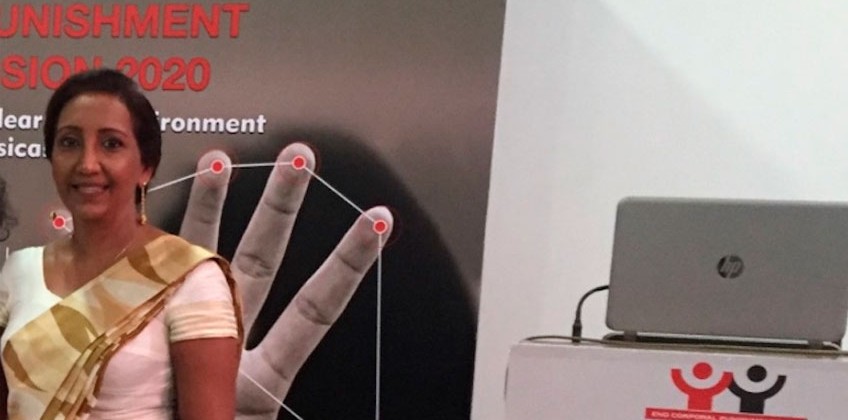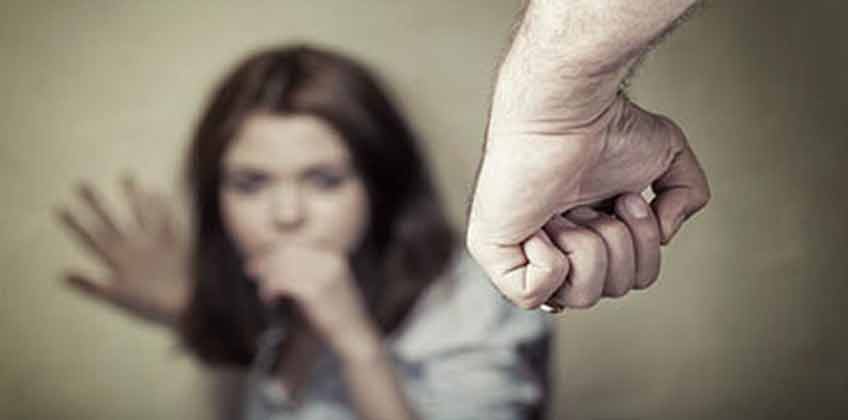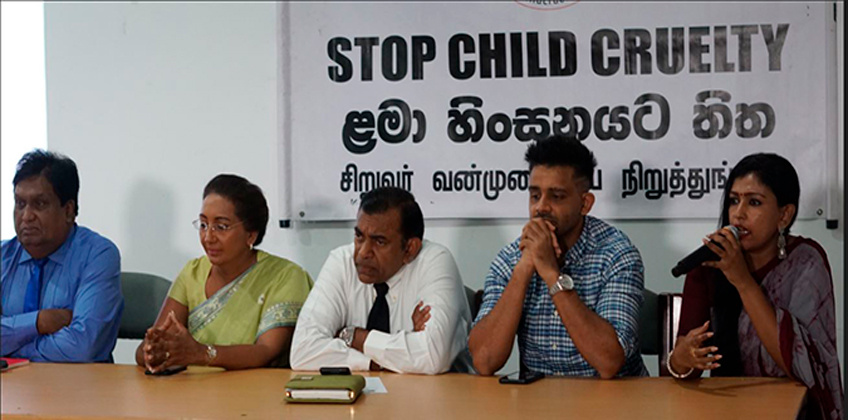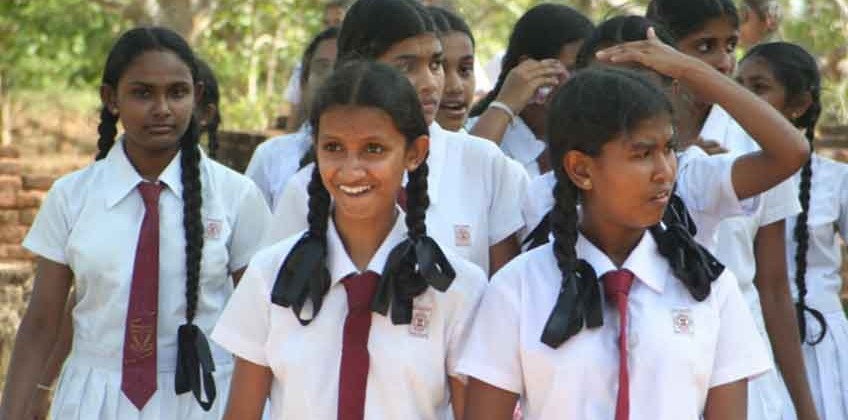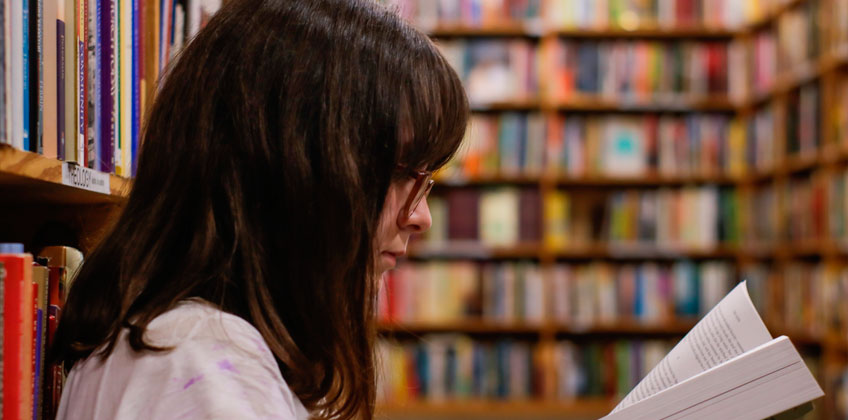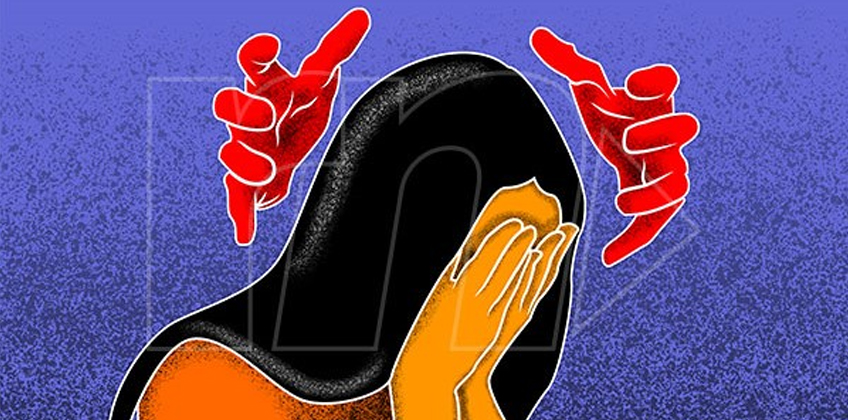
ECONOMYNEXT – The United Nations Human Rights Committee (UNHRC) has written to the Sri Lankan government seeking details about a complaint made by a Sri Lankan parent regarding the violation of the rights of a child, in this case involving corporal punishment.
The case is highlighting the issue of corporal punishment in Sri Lanka’s schools which continues despite an official ban.
The UNHRC has registered the complaint and it has now sought a response to the complaint from the Sri Lanka government.
Child Rights experts EconomyNext spoke to believe, that this is the first such case filed by a minor with the UNHRC. The case had been filed by the mother of the victim, in August 2019, under the International Covenant on Civil and Political Rights (ICCPR), and the First Optional Protocol.
[Eds. Note EconomyNext is not publishing the name of the complainant as the child is a minor]
In a communication in July this year to the complainant, the UNHRC has stated that the case has been registered, and that Sri Lanka has been requested to submit ‘any information or observation in respect of the question of admissibility and merits of the communication.’ While the Committee usually requests such observations to be filed within six months of registering a complaint, the deadline for submissions by the State party has been extended by two months, owing to the COVID 19 pandemic.
The complaint stems from the alleged punishment of the victim, who was 11 years old at the time by a teacher of the International School she was attending. The teacher, it is alleged, had asked the victim and some of her classmates, who had forgotten to take the English Reading book to class, to kneel down. The teacher had also allegedly pulled the victim by the ear.
According to the complaint that has been registered when the mother of the victim had protested against the actions of the teacher, an internal inquiry had been held but no action had been taken, the parent reported. As the issue progressed, the complainant states that the Principal of the school had divulged the details to the teachers and students, resulting in the victim being harassed. The punishment and the harassment had caused both emotional and physical distress to the victim with the child also refusing to attend school for a few days, the complainant says.
With no redress forthcoming from the school authorities, the complainant had lodged an entry with the relevant police station and when efforts to resolve the matter through police intervention had come to nought, also complained to the National Child Protection Authority (NCPA). When the Ministry of Education had been informed of the situation, the complainant had been informed that the Ministry had no jurisdiction over International Schools, as they are incorporated as private companies.
The complainant had then filed a fundamental rights application with the Supreme Court, challenging the use of corporal punishment against a minor. However, the Court had not granted Leave to Proceed.
The complainant states that the issue was taken before the UNHRC, as all domestic remedies sought have been exhausted.
The United Nations Committee on the Rights of the Child defines corporal punishment as: “any punishment in which physical force is used and intended to cause some degree of pain or discomfort, however light.”
While the issue may be seen in Sri Lanka as being limited to administering light punishment and involving discipline in an International School, which does not strictly fall under the purview of the Education Ministry, that a complaint has been made to the UNHRC is a telling commentary on delays in introducing clear policies and legislation necessary to safeguard the rights of children in Sri Lanka.
On the one hand, though the National Child Protection Authority (NCPA) came into being in 1998, the National Child Protection Policy drafted a few years ago, received Cabinet approval only in October 2019.
Sri Lanka is a signatory to the UN Convention on the Rights of the Child, and therefore, must report progress on interventions on this subject, to the UN every five years. According to child rights experts, even though Sri Lanka complies with the reporting process, recommendations which call for the banning of corporal punishment for instance, are yet to be implemented.
This is not to say that there have been no efforts to address the subject. Over the years there have been several attempts to ban corporal punishment through circulars issued in 2001, 2005 and in 2016 by the Department of Education.
In fact, the 2016 circular (12/2016), cautioned schools against the use of corporal punishment and even offered several positive disciplinary methods that could be adopted. As a means to discouraging the use of violence to punish students, the circular also suggested that schools could set up discipline committees.
A former Secretary of Education, Dr Tara de Mel, speaking to EconomyNext on the efforts made during her time to dissuade schools from practising corporal punishment said ‘Principals of ‘elite’ schools had objections to the 2001 circular, which cautioned against the use of physical punishment and other forms of abuse, as they said they could not ensure discipline in schools if they had to adhere to the circular. The then Minister of Education, who currently happens to be the State Minister for Education Reforms, had caved into the pressure and shelved the idea.
Dr. de Mel added however, that the NCPA and then President, Chandrika Bandaranaike Kumaratunga had been very keen about the issue, and a watered-down version of the circular had finally been sent out. Dr. de Mel added that she had been invited in 2018 to participate in discussions on the subject, to effect suitable changes by the then Minister for Education, but after the October 2018 political debacle, that attempt too had floundered.
A new Education Act, she says is sorely needed, which will ensure that all schools and educational institutions conform to the guidelines and standards set out by the Ministry of Education (MoE). Currently, International schools continue to be registered as BOI entities. Though there is some form of oversight by the MoE, it is not a sound basis, she points out, adding that a legislative process is necessary to iron out the issues.
In May of 2017, a team led by Professor Harendra de Silva, the first chairman of the NCPA, released its ‘Study on Child Disciplinary Methods Practiced in Schools in Sri Lanka.’ The study commissioned by the NCPA documented “high rates of corporal punishment of students in schools in Sri Lanka. The use of psychological aggression too was high. Worryingly, so was physical abuse, a criminal offence.”
Students and teachers in the primary, middle and upper schools in the Colombo, Galle, Moneragala, Trincomalee, Mullaitivu, and Nuwara Eliya districts had been interviewed for the study, which included Government-run national and provincial schools, private schools, those falling under religious or non-governmental organisations and also the schools for the differently-abled. A total of 948 students and 459 teachers had been interviewed during the study period of January to March 2017.
Accordingly, “80.4pct of students reported having experienced at least one episode of corporal punishment in the past term.” As well, 53.2pct had faced physical punishment and 72. 5pct of the students had said they had experienced at least one method of psychological threat during that period.
Meanwhile, 69.1pct of teachers had acknowledged using at least one form of corporal punishment, and at least one form of physical punishment had been meted out by 13.1pct while 65.8pct had admitted to using psychological aggression.
Clearly then, it cannot be said that the vexing issue of corporal punishment is limited to International Schools alone. As that report finds, it is prevalent in all educational institutions.
Meanwhile, the recently released ‘Re-imagining Education in Sri Lanka’ report put together by the Presidential Task Force appointed to recommend Educational Reforms has no reference to corporal punishment in schools. The only mention of eradicating violence involves a few recommendations against ragging in Universities.
Emeritus Professor of Law, University of Colombo, Professor Savitri Goonesekere explains that though circulars may not apply to International schools, the constitutional standards specified in the country do apply. It is not only about ‘State Action’, but also ‘State Inaction,’ she adds. In today’s context, the socio-economic issues are frontline, and the history of violence against women and children will be exacerbated due to COVID, where people are compelled to remain at home together for days at a time.
Therefore, the issue of corporal punishment cannot be de-linked from the other forms of violence, and even though laws and policies have been enacted, and interventions made there has been no real impact on the core of the problem. Goonesekere states that ‘corporal punishment is a single issue, that could, through policy, be used to create a zero-tolerance attitude towards violence against children.’ It should not, she says, be seen as an elitist issue.
‘The need for change is embedded in the international standards that Sri Lanka has ratified; in the Rights of the Child, and its own policy documents such as the Children’s Charter. It is also embedded in the reforms in 1995 to the Penal Code, where the specific issue of cruelty to children was introduced.’ She goes on to explain, that the word corporal means physical punishment, which is not really understood by most, who believe that it is just a means of disciplining a child. It really has an enormous psychological and physical impact on the child, she adds.
According to the Professor, there have been previous complaints to the UNHRC from Sri Lanka involving various other violations under the ICCPR Act, and though communications on those cases have been made, there has been no attempt by Sri Lanka to adhere to those communications.
Even though the recently released report on Re-imagining Education in Sri Lanka overlooks the issue of corporal punishment, there is still room for the government to bring in meaningful changes to the law that would ensure zero-tolerance against violence of any form against children.
As Goonesekere suggests, not only the State but other actors such as community leaders, parent-teacher associations, advocacy groups and the medical professional should be pro-active in leading the change in attitude regarding the use of violence against children.
If the UNHRC finds in favour with the applicant the State will be expected to make the necessary changes. Sri Lanka’s history in adhering to those communications, as Professor Goonesekere points out has been poor, so far.
But, if the State is seriously committed towards the welfare of the country’s children, it could take this opportunity to address the issue of corporal punishment and all other forms of violence against children and introduce effective laws that uphold zero tolerance and a safer environment for children. (Colombo, November 26, 2020)
By Kshama Ranawana




